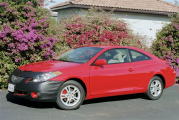Cronikles,
I would think that by putting 20" wheels, you're going to have a helluva time determining your actual mileage. Primarily because even using a lower profile tire to compensate for larger wheel size will change the diameter at least a little. Your odometer is probably reading too few actual miles now, and it will be difficult to determine by exatly how much. There are calculators available but you'll have to know the original diameter and the new diameter for both setups.
In addition (generally speaking, of course) bigger wheels add both weight and friction (more surface area if you go to wider tires) which both decrease mileage. Unless your 20's weigh less than stock. I think larger wheels will make the computer think you're getting worse mileage since it thinks you're travelling less miles.
The following is from
http://www.ftc.gov/bcp/conline/pubs/autos/octane.htm :
Are you tempted to buy a high octane gasoline for your car because you want to improve its performance? If so, take note: the recommended gasoline for most cars is regular octane. In fact, in most cases, using a higher octane gasoline than your owner's manual recommends offers absolutely no benefit. It won't make your car perform better, go faster, get better mileage or run cleaner. Your best bet: listen to your owner's manual.
The only time you might need to switch to a higher octane level is if your car engine knocks when you use the recommended fuel. This happens to a small percentage of cars.
Don't throw your money away on higher octane than specified. Toyota calls for 87 and nothing higher will improve HP, mileage or engine life.
<My $0.02 worth - and I know some of you will swear I'm wrong, but talk to any gasoline engine designer... higher octane is for different compression ratios, different engine materials, etc.>



